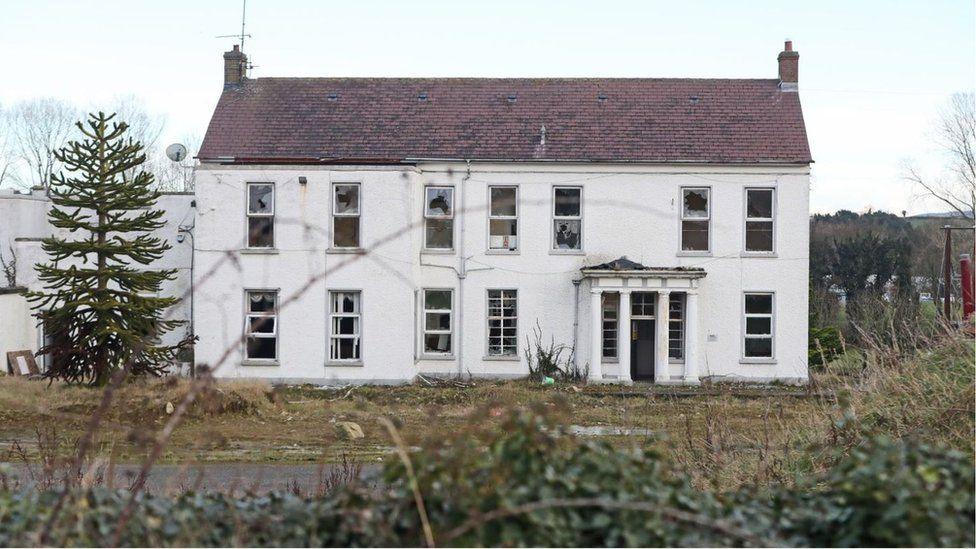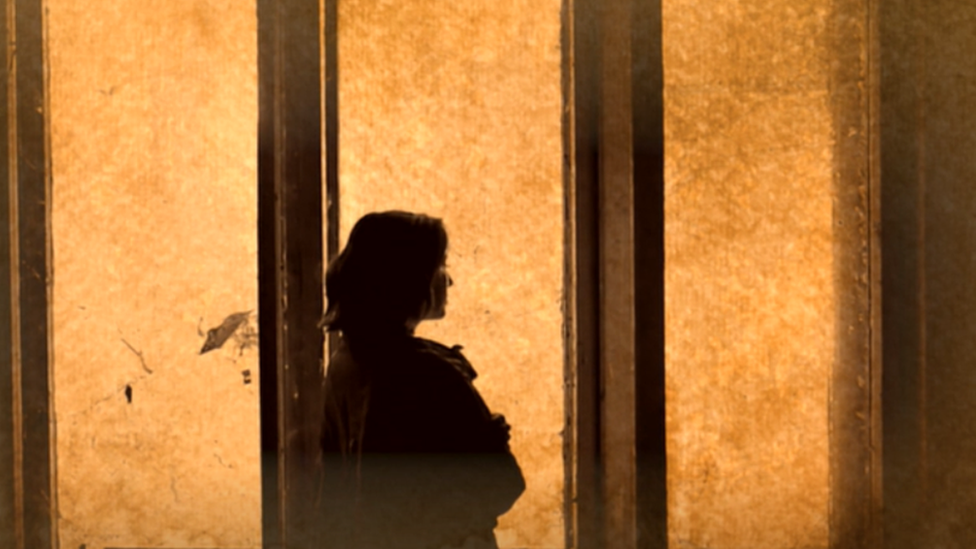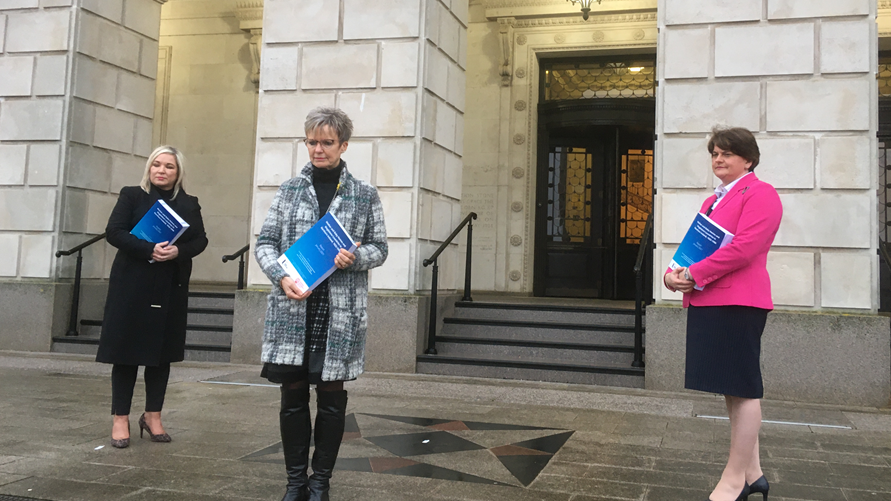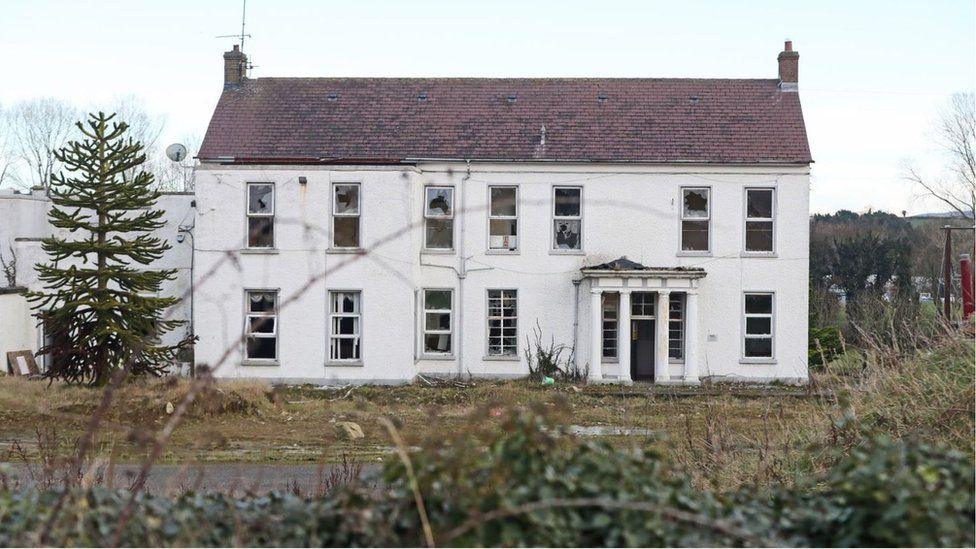Expert panel to work with mother-and-baby home victims
- Published

The Marianvale home in Newry was one of those examined in the Stormont-commissioned research
A team which will work with victims and survivors of mother-and-baby homes in NI to establish terms of reference for an independent investigation has been announced.
In January, the NI Executive said it would establish a victim-centred independent investigation.
This will be into the operation of the historical institutions between 1922 and 1990.
The executive's decision followed the publication of a report, external into the homes.
The Stormont-commissioned research into mother-and-baby homes and Magdalene Laundries in Northern Ireland was carried out by Queen's University and Ulster University.
The Department of Health said the members of the Truth Recovery Design Team are:
Deirdre Mahon, a qualified and experienced social worker/youth and community worker
Phil Scraton, professor emeritus in the School of Law, Queen's University Belfast
Dr Maeve O'Rourke, lecturer in human rights at the Irish Centre for Human Rights, National University of Ireland Galway, and barrister
The Department of Health also announced details of a dedicated phone line 0300 0200 789 and website, external to enable victims and survivors of the institutions to participate.
Deirdre Mahon said the panel would build upon the work done by Ulster University and Queen's.
"We are very mindful that people have been waiting a long, long time for truth and justice on this," she added.
"The six months time frame will be challenging because we are working with very delicate and sensitive issues, but nevertheless, survivors need to see some action and they need something moving forward."
Prof Phil Scraton, who led the Hillsborough Independent Panel's research team, emphasised the importance of putting victims and survivors at the heart of the investigation.
"There is in increasing recognition that the view from families, survivors, those who are the closest related to the circumstances, either of death or of other traumatic events, those people should be front and centre and that is what this panel intends to do," he said.
"What we intend to do is to ensure that those voices are heard and we are not speaking on their behalf, we are speaking with them."
Dr Maeve O'Rourke said it was a "forward thinking approach" to put "those affected in the driving seat".
"They are the absolute experts in what has happened to date and what they need in order for justice to be served," she said.
"Our task will be to help them put a legal framework around what it is they need."

Thousands of women and girls entered the institutions in Northern Ireland over a 68-year period
Health Minister Robin Swann said he was delighted to announce the appointments and had "asked the team to start its work immediately and to report within the six month timeframe set by the executive for this work".
First Minister Arlene Foster said "many women and children who were victims of shocking ill-treatment and abuse in mother-and-baby homes and Magdalene laundries have had to wait far too long for their voices to be heard".
"The appointment of this team of experts to work with victims and survivors in shaping the independent investigation is another welcome step forward in the long fight to break the silence around their suffering," she added.
Deputy First Minister Michelle O'Neill said "the harrowing stories of the many women and children who suffered abuse in Mother and Baby Homes and Magdalene Laundries are truly heartbreaking".
"I would encourage all victims and survivors to come forward and to make their voices heard so that the team of experts can set about shining a light on this dark and shameful period in our history," she added.
Judith Gillespie, the independent chair of the inter-departmental working group, which had oversight of the research by Queen's University and Ulster University, has also welcomed the appointments.
The report into mother-and-baby homes and Magdalene laundries in NI was commissioned by the Department of Health in 2018 and assessed the period from 1922 to 1990.
It examined eight mother and baby homes, a number of former workhouses, four Magdalene laundries and sought personal testimony from women and children with "lived experience" of the institutions.
Mother-and-baby institutions housed women and girls who became pregnant outside marriage.
The laundries were Catholic-run workhouses that operated across the island of Ireland.

What were the report's key findings?
It describes as a "conservative estimate" that over 10,500 women and girls entered the homes between 1922 and 1990
The majority of them were from NI (86%), with the remainder from the Republic of Ireland and Great Britain
About a third of those admitted were under the age of 19, with the youngest child to be admitted aged 12
A number were the victims of sexual crime, including rape and incest
Living conditions and care for residents were recorded in little detail but personal testimonies revealed "strenuous physical labour" being expected of them late into their pregnancies
It is "indisputable" that there was "considerable movement" of babies from some of the homes in NI to the Republic of Ireland

Related topics
- Published26 January 2021

- Published26 January 2021

- Published26 January 2021
